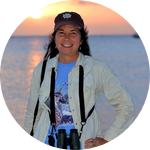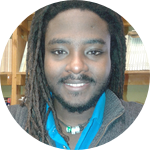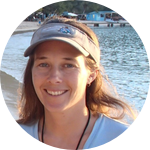About This Project
Seabird populations are declining. Seabirds face a number of threats in marine and terrestrial habitats. Research elsewhere has identified threats as habitat disturbance including those caused by humans, and introduced predators. Also, global issues such as climate change negatively influences ocean productivity where colonies are found. Here, I will determine the cause of seabird decline by assessing human and invasive predation on Grenadine Seabirds.
Ask the Scientists
Join The DiscussionWhat is the context of this research?
Monitored seabird populations have shown major declines worldwide since the 1950s (Paleczny 2015), and the Caribbean region is no exception. Although research identifies major causes of decline, there is lack of data supporting threats to colonies in some small island developing states. Additionally, limited capacity for scientific research often hinders advancements towards conservation management. Earlier studies have shown declines in population size, yet possible threats to seabird colonies remain unassessed in the southern Grenadines (Grenada).
What is the significance of this project?
This research will be the first in-depth analysis of monitoring data for Grenadine seabirds. The information gained from this project can be used to inform management systems conservation management decisions, and aid plans in creating community based monitoring programs. Furthermore this project will be contributing to a global database for seabird monitoring.
What are the goals of the project?
My goal is to determine the cause of seabird decline in southern Grenadine populatins. Particularly, I will look at how human and rat predation affects trends in 6 different seabird populations located north of Grenada. The findings of this project will be summarized in an annual report, which will be made available to the public, and government agencies. I will participate in conferences such as the North American Ornithological Conference and BirdsCaribbean 2017 Conference to learn and share the results of my research.
Budget
The submitted budget will be used to assist data collection through this first phase of a two - part project, which aims to establish a community seabird monitoring program in the Grenadines. Marine binoculars for field assistants will be used for conducting bird counts on 4 islets. A volunteer stipend will be used to assist field assistants/ interns with adequate transportation, food, and other protective supplies (e.g., sunblock, etc.). Supplies are needed to ensure efficient monitoring of 5 islets in one day, such as a dry bag to protect other supplies and equipment.
I was able to attain funding for the majority of the study through another source that covered water taxi transportation, equipment (i.e., ibuttons, cameras, GPS receiver, etc.). I was unsuccessful, however, in obtaining this portion of my submitted budget ($915).
Endorsed by
Meet the Team
Affiliates
Wayne Smart
I am a native of Grenada, currently pursuing my master’s degree in an environmental science program at Arkansas State University (ASU). I have a B.Sc. from St. George’s University, Grenada where I majored in biology (marine, wildlife and conservation). My master’s thesis aims to determine the cause of seabird population declines in the Grenadine islands of Grenada. My coursework (e.g., biological data analysis, environmental law and administration, etc.) is providing me with the knowledge I need to conduct research and pursue a career in environmental conservation. As a graduate student, I am deepening my knowledge in the conservation field while using integrated, quantitative, and multidisciplinary approaches to solve conservation problems. I have received training in field surveys and research techniques and already have extensive experience surveying seabirds and working with communities. My extracurricular activities include outreach through various student groups (e.g., Avian Ecology Club, and Wildlife Club) and building knowledge through professional forums in conservation (i.e., conferences, and research symposiums). I wish to pursue a career in natural resource conservation, a field that is not well represented in Grenada. I am passionate about Grenada’s amazing bird life and biodiversity and concerned about human-caused threats to these irreplaceable resources. My career goal is to advocate for the conservation of nature in Grenada by using science to support sound conservation management decisions.
Natalia Shivan Collier
Since 2000, I have served as co-founder and Grenadines Seabird Program Manager of the nonprofit organization, Environmental Protection in the Caribbean (EPIC). My background is in wildlife biology, with a focus on seabirds. I currently manage several research, outreach, and conservation projects throughout the Caribbean Basin.
I coordinated with our research team on the groundbreaking Seabird Breeding Atlas of the Lesser Antilles, which provides the first regional, standardized perspective on the population status of seabirds. It was this book which prioritized the conservation value of the Grenadines and highlighted the issue of seabird harvest in the area.
One of my primary interests is community-based solutions to conservation threats, particularly those affecting seabirds and wetland habitats.
Project Backers
- 27Backers
- 108%Funded
- $990Total Donations
- $36.67Average Donation


